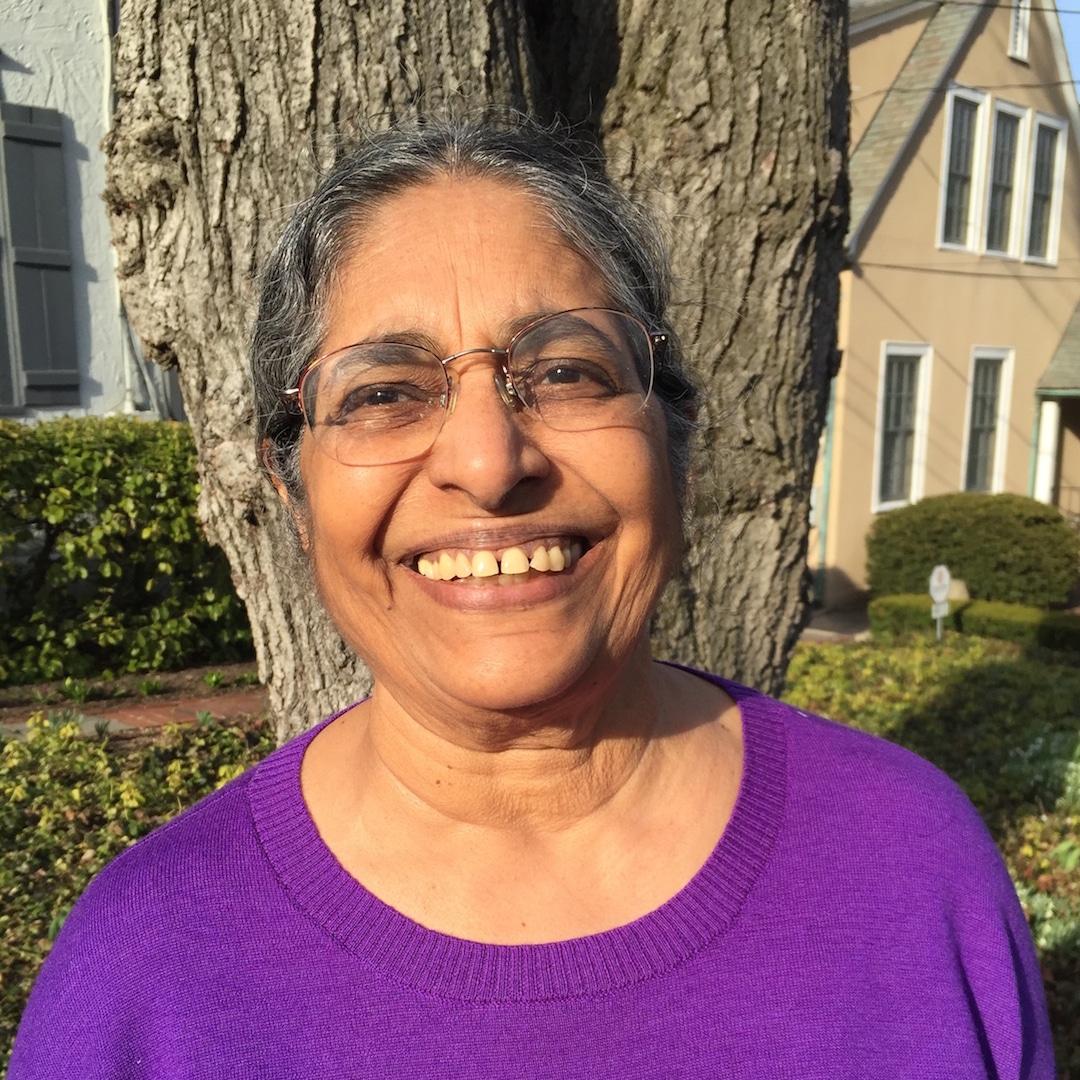People's Public School/Praja Vidyalayam
Purpose Prize Fellow 2015
A widow creates a school in India for impoverished children in her husband’s memory, helping students graduate and pursue college.
My journey began in tragedy. My husband died suddenly when I was 50 years old. I went to India on pilgrimage, visiting the town where we went to college. I saw many children in the slums, working for menial wages. Like many neglected children in India – child laborers, dropouts, the physically disabled – they are left out of traditional schools. They lack a future because they cannot read.
I began telling them stories, and they helped me to feel better. Because they came so often to my house, I decided to start a school, and dedicated it to the memory of my husband.
Unlike most schools, we teach in Telugu, our local language. Most Indian schools use rote memorization, but I wanted to bring some of the methods I knew from the U.S. into the classroom, including music, debate, and the arts, along with daily sports. We provide basic health care, nutrition, hygiene and environmental education. The children bring the information home to their families.
- 100 percent of graduates have passed India’ s college admissions exam; most go on to college and technical school, with the support and sponsorship of local and international members of the Telugu community.
- From a single home “classroom” and two students in 2000, the school now enrolls 200 students and employs 13 teachers, with projects that help students’ families earn extra income.
- International support includes Rotary International, the Lion’ s Club, Association for India’s Development and the Mibleu Foundation (Switzerland).
I began with a single classroom. Now, we have over 220 students, and provide a complete primary education through 10th grade, when students take college entrance exams, which 100 percent of our students have passed. Despite our initial modest plans, most have gone on to pursue secondary education, with financial support from the extended community. We have helped eight women get their bachelor’s degrees. Five are now teachers at the school.
We also try to create opportunities for older siblings and parents, especially the mothers, to generate a small supplemental income. With four sewing machines, we trained some women to make children’ s clothing out of old bedsheets. We started a book-binding and repair workshop, which gives new life to the donated books in our library. We run a nursery for the small children so the older children can attend classes.
I draw on my roots in the community to build bridges between the elites and the school community. This is delicate work, engaging all the related parties without causing offense. It helps that I am older. In India, my age is a benefit, and I am given respect and credit for my life experience.
I have spent half my life in India and half in the U.S. I believe in the American educational approach, and in Indian culture, with its emphasis on storytelling and rigor. Because families view me as an American, I have the freedom to try new things. But if I stray too far, I will lose their trust.
In Hinduism, life is divided into four stages: the first is for learning, the second for providing for your family, the third is taking care of your elders and the fourth is serving those in need. That is what I am doing now. I have the freedom to pursue my passions and the wisdom to teach others. Running this school has been as rewarding and fulfilling as anything else I have done in my life. I have gained more than I thought possible.




